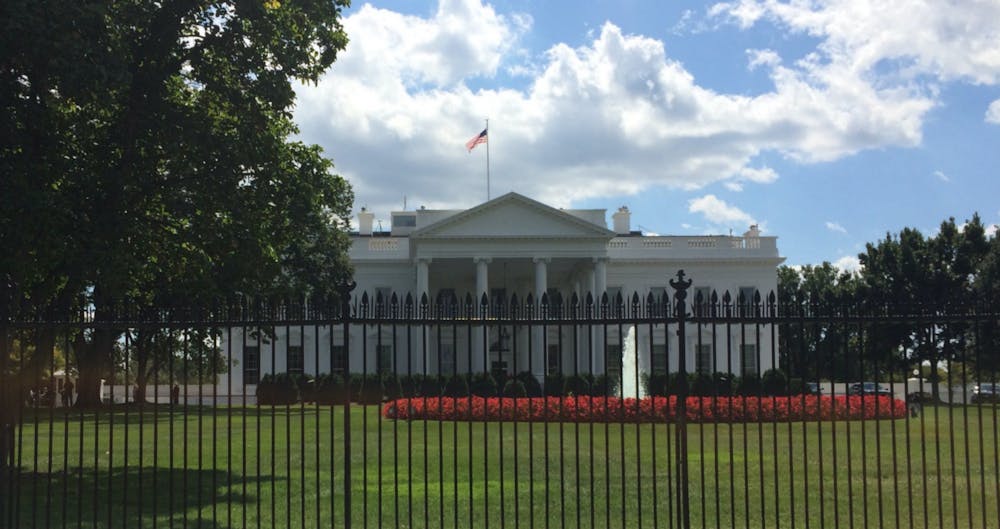Investments in public transport, the building of electronic vehicle charging stations and the rebuilding of roads and bridges are all changes D.C. residents can expect after the passage of the Infrastructure Investment and Jobs Act last month.
On Nov. 6, 2021, Congress voted to pass the bill, a bipartisan deal that aims to rebuild infrastructure across the country, as well as expand access to services such as drinking water and internet access.
The infrastructure bill was signed into law by President Joe Biden on Nov. 15. According to a statement released by the White House, the legislation will add an average 1.5 million jobs per year for the next 10 years.
Claire Whitman, a junior in the School of International Service and the president of the American University College Democrats, said she is in favor of the infrastructure bill.
“I’m from a rural state,” Whitman said. “I think we can really see the impacts of rural broadband of crumbling roads and bridges, that’s very basic infrastructure, but also some of the more modern technological investments.”
Whitman said the fact that the infrastructure bill passed in such a bipartisan manner was a big deal to her.
According to the White House, D.C. is expected to receive over $1.2 billion in funding toward the improvement of public transportation over the next five years.
Dr. Andrew Ballard, an assistant professor of government in the School of Public Affairs, said he believes it is good Congress collects and redistributes money toward projects that are beneficial to the public.
“That said, there are all sorts of infrastructure problems in the United States that didn’t make it into this bill,” Ballard said. “So there’s always more work to do. And this is kind of how policymaking in the United States is set up, that it is a lot easier to have incremental changes rather than extremely large changes.”
The passage of the infrastructure bill comes as Build Back Better, a framework created by the Biden Administration, heads to the U.S. Senate for debate and a vote.
Build Back Better, which passed the House of Representatives on Nov. 19, promises to combat climate change, provide universal and free preschool and expand the U.S.’s affordable health care program.
Sal Cottone, a freshman in the SIS and a member of the Sunrise Movement at AU, a youth-led organization dedicated to fighting for climate and environmental justice said both the infrastructure bill and Build Back Better need to be passed together.
“If we kept the infrastructure bill as is, we would have saw nothing towards climate change, it would have actually funded more fossil fuel production and in turn, would have basically went against everything that we were fighting for, which is why we have Build Back Better, which in our opinion, needs to be passed hand in hand with the infrastructure bill,” Cottone said. “You can’t just have one or the other, they both have to go hand in hand.”
While Cottone is worried that Democratic Senator Joe Manchin will vote no on the Build Back Better bill, he remains hopeful.
“In general, I’m hopeful because even if he votes no, I know our generation will rise up like we’ve been doing and even in a bigger fashion, because this is the first step to combat the climate crisis,” Cottone said. “And if it’s voted no on that, we have nothing left.”
The Sunrise Movement at AU is currently on their third week of organizing a sit-in protest for the Build Back Better bill.
According to Whitman, both the infrastructure and Build Back Better bills address the impacts that these investments have on people’s lives.
“As a Democrat, and as a student who represents the Democratic Party on campus, I’m pleased to see that the party is making these investments, because I think that's really what they were elected to do.”




